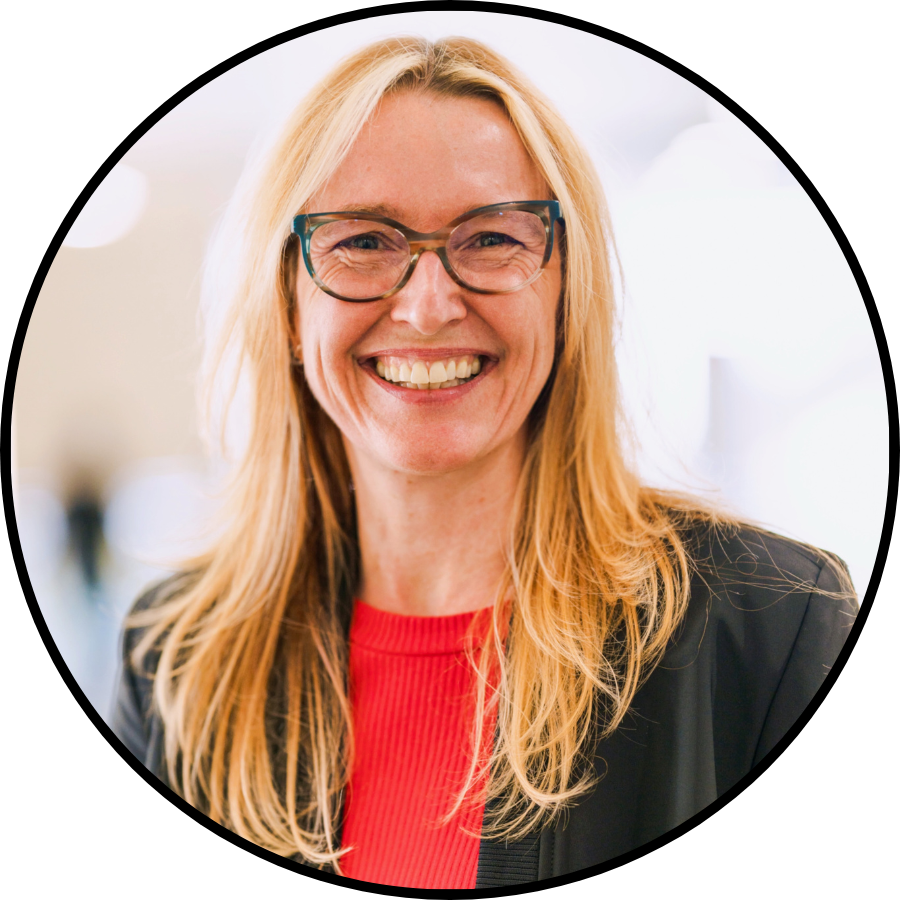
By Jared Karol
In today’s Diversity & Inclusion Spotlight, we hear from Amy Lazarus, Founder and CEO of InclusionVentures. Through strategic consulting, expert facilitation, interactive workshops and trainings, and inspiring keynotes, InclusionVentures creates transformational experiences, skill-building, and knowledge transfer that lead to innovative practices, better decision-making, optimized performance, and a better world.
Change Catalyst: What motivates you to work towards an inclusive tech ecosystem?
I was raised in an intentionally racially integrated community outside of Cleveland, Ohio. In high school, I was part of the Student Group On Race Relations. We taught elementary school students about race, stereotypes, and discrimination. To prepare to teach the younger students, we gathered in one another’s living rooms every week to practice the curriculum and have our own conversations. This model helped us learn not just why we should talk about this, but how — and it became part of the culture of the district and community. There are high school students in Shaker Heights, Ohio that can facilitate conversations about identity and difference better than many executives in Silicon Valley.
Why is that? And what is the most effective, efficient, and joyful way to make inclusion the norm?
I’ve been exploring this question at every stage of my life. In college, I co-founded Duke’s Center for Race Relations and Common Ground. We created transformational retreats for college students to practice empathy, learn more about their multiple social identities, and identify how to create a more inclusive campus. There are thousands of alumni applying this in their daily work at companies like LinkedIn, Facebook, and Workday. After running a nonprofit — the Sustained Dialogue Institute — for five years, I founded InlcusionVentures because I wanted to make inclusion the norm more quickly by working with tech and media organizations that are such an integral part of our daily lives.

Change Catalyst: What are you currently working on to improve diversity and inclusion in tech?
Amy: We work with influencers at all levels of the company to create spaces where everyone can thrive. We’ve found that most people understand the business case for diversity and inclusion but are not implementing behaviors to get there. We help companies bridge that disconnect by implementing strategies and tactics. For example, what does it look like to be an inclusive leader? How does that translate for executives, managers, and junior talent? We’ve created Inclusive Leadership Ambassadors that are trained to, charged with, and committed to changing the culture of their organizations. It’s incredible to watch the transformation that comes through an Executive Team member and a junior staff member catalyzing their trust, listening differently, and, as a result, identifying better solutions.
We’re also working on helping companies identify the difference between a workplace environment that has bullying or harassment and one that isn’t inclusive — collaborating with Michael Thomas at the law firm Ogletree Deakins on “Inclusion and the Law”. We take a company’s legal requirement for providing sexual harassment training to another level by helping staff understand where comments and behaviors fall on a spectrum of inclusiveness in the workplace.
Change Catalyst: What will be the biggest story around diversity and inclusion in 2017?
Amy: I hope it’s that start-ups finally commit to the idea that building for speed and building for diversity are not mutually exclusive. I frequently hear from founders and leaders in start-ups: “We’d love to hire more diverse candidates, but if we don’t hire someone right now, we may not make it to our next three months.” Then the same situation arises three months later, and a year or two after that the company looks up and asks how they have so many people who are talented and look the same. People need to be thinking about how they always can be recruiting outside their typical networks.
Change Catalyst: What one key solution would make a huge difference in creating a more inclusive tech ecosystem?
Amy: Two! First, when companies release diversity numbers, add inclusion and engagement metrics. Diversity (who is there and who is not there) is only one part of the equation. If you’re not also focused on inclusion (is this an environment where everyone is thriving?), and the specific skills of managers and leaders to create inclusive team environments, you won’t be able to experience the full potential benefits of diversity. In fact, you could be causing more harm than good for the women, candidates of color, and LGBTQ employees that you invested so heavily in recruiting. In one organization we work with, telling their inclusion journey helped with the organization’s hiring: Four out of five new hires were people of color, and all five new hires shared that one of the reasons they chose the organization was because they knew the company was committed to inclusion.
Second, infuse inclusion into every aspect of the company. Diversity and inclusion are not only an HR function. Coca-Cola did this brilliantly, aligning product, corporate social responsibility, HR, pay equity, leadership development, and more. It’s important to bring a D&I lens to your widgets. Who is creating your products and services? Who isn’t creating your products and services, and what perspectives might you be missing as a result? We partnered with Stanford’s d.school to address this issue — combining unconscious bias with design thinking, resulting in a TEDx Talk and a free open source deck to download.
Change Catalyst: What is the best example of leadership in inclusion you’ve seen recently?
Amy: Who comes to mind are all of the people working on inclusion who don’t have “diversity and inclusion” as part of their job title: Heads of Employee Resource Groups, allies becoming more aware of the power and impact of their language and actions, managers taking steps to decrease their unconscious bias before interviews or performance reviews. Research supports the idea that one of the biggest causes of wasted resources at work is having to manage perceptions and navigate our identities. The best examples of leadership in inclusion are the people who every day show up at workplaces where the environments may not be designed for them to thrive, and yet they still contribute their amazing talent and perspectives. It can be exhausting being “the only,” or being questioned or not given credit because of one element of your identity. For individuals of color, women, people in the LGBTQ community, or people with visible or invisible disabilities, showing up in the face of subtle or not-so-subtle exclusion is an example of leadership.
Change Catalyst: Describe the impact you’re having in your role.
Amy: I am fortunate to work with incredible humans at leading organizations. Given the nature of this work, our conversations tend to go deep quickly, and we build trust and vulnerability with each other. It’s incredibly satisfying to collaborate with organizations, see their rapid and tangible progress, and equip them to phase InclusionVentures out of their work over time as they learn to be inclusive leaders and create inclusive cultures. It’s validating when someone says to us after a workshop series, “I’m able to stay at this organization because of the work we’re doing around inclusive leadership.” And it also reinforces the importance of organizations focusing on this work.
Change Catalyst: Just for fun, what unique or unusual talent/skill do you have?
Amy: Growing up in a very “punny” family, I appreciate — and often make — puns. I’m also grateful that Wayne Sutton, co-founder of Change Catalyst, does not let our Duke v. UNC rivalry interfere with collaborating with each other toward a more inclusive world.
About Change Catalyst:
Change Catalyst empowers diverse, inclusive and sustainable tech innovation — through events, consulting, research and training.
Our Tech Inclusion programs explore and develop innovative solutions to tech diversity and inclusion.
Our Startup Ecosystem programs help underrepresented entrepreneurs and investors to start, scale and fund worldchanging businesses.
Change Catalyst is a Certified B Corp, winning the “Best for the World” award for community impact in 2014 and “Best in the World” overall in 2015.
Join Us in Driving Jobs, Empathy and Tech Inclusion Across the U.S. and Beyond in 2017
The Change Catalyst Team
Follow Us on Twitter | Like Us on Facebook | Subscribe to Our Email Newsletter| Listen to our Podcast







